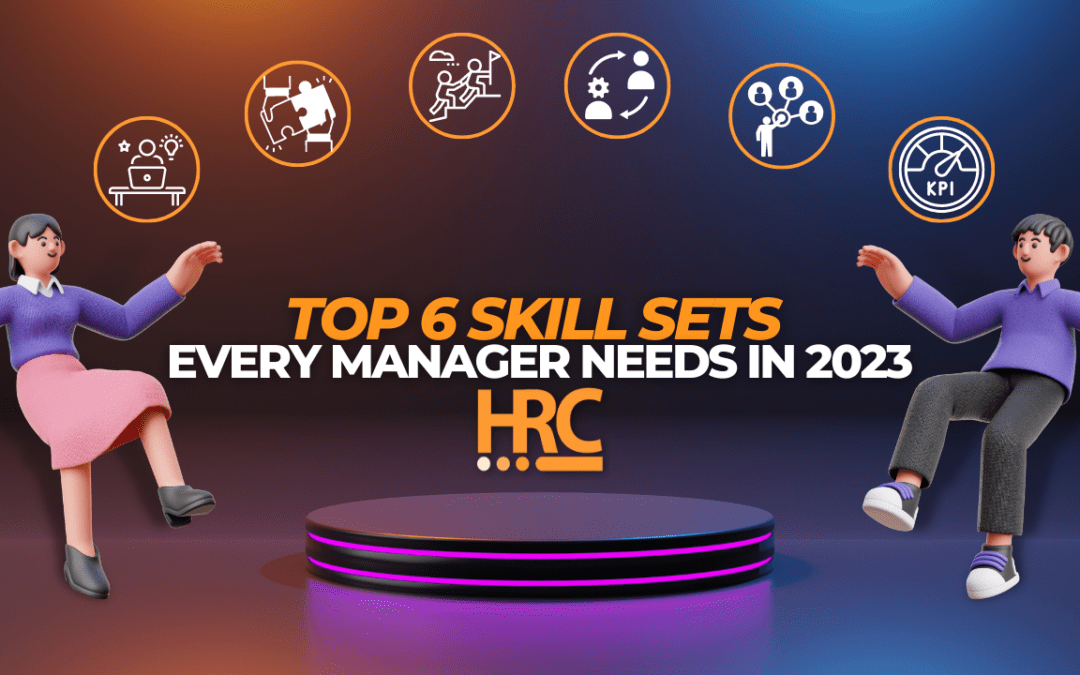In recent years, many challenges have come from the changes in the economy and workforce, along with a growing shift to hybrid work. These changes have also required that Companies provide training for their managers to ensure effectiveness of their teams with such a changing environment. Below, are six top skills needed for managers to make this type of shift successful:
Effective Communication with Flexible Workforces
As a result of technological advancements, it is easier than before to keep communication flowing with remote team members. With so many video and/or chat choices, teams can meet and stay connected throughout the day and week. It’s important for Managers to have weekly Kick Off Meetings to ensure expectations are clear for the team on top priorities. It is also important to have “check ins” during the week with individuals to answer questions, guide, and ensure work gets done well. Feedback loops are important for the Managers as well as the team members.
Setting Priorities & KPI’s
Managers need to be able to look at overall business goals from a balanced way (financial, customer, process, and people) to understand how to align their department’s focus to what matters. This means understanding the top priorities and Key Metrics (or KPI’s) that drive those. KPI’s are how a team measures if their actions are making a difference. From there, managers can develop cascaded goals and KPI’s in their areas that directly drive the business KPI’s. This is a key important strategy and skill that all Managers should possess.
Building Cross-functional Collaboration
Building cross-functional collaboration within different teams can effectively drive through projects and ideas with better outcomes. Managers who engage and develop this skill can:
-
- Increase productivity
- Facilitate employee growth & cross-training
- Strengthen company culture
- Improve department communication & engagement
Creativity and Coaching
The best managers are those who are able to coach team members in creative ways that motivate and provide guidance toward achieving goals. For example, a manager may use coaching techniques to train employees for new positions, delegate and divide tasks based on employee strengths, or improve an employee’s performance through clear expectations and action plans.
Technology / Data Focus
Managers can utilize the data gained from technology and platforms to improve processes and support business goals. Analyzing this data can help provide key insights on strengths and weaknesses within the organization and team. Some examples of measurable people data are:
-
- Employee experience surveys, stay interviews, exit interviews
- Performance metrics & KPIs such as Output, Revenue per Employee, Dollars Shipped Each Day, etc.
- Customer & Products data is also important to understand trends, profits, and focus areas
Change Management
Businesses face a variety of challenges that they have to adapt to such as changes in technology, laws and regulations, business, and economic trends. It is the managers responsibility to guide these organizational changes to fruition from the preparation stage to implementation to ensure their department’s success. Changes can be:
-
- Adaptive – gradual changes to evolve output, processes, workflows, and strategies over time.
- Transformational – larger scale changes involved in redeveloping the core business.
Both of these require a well thought out plan, for short term and long term, that includes communications and how to deal with team members who don’t seem to be moving forward.
As business changes – so must the management team. It is a never-ending cycle to stay on top of the changes in the external and internal environments. And, investing in your managers will help ensure your business and people adapt to those changes in a positive and productive way.
Need help with Management Development, Business Strategies, or People Programs?
HRC is Here for You!
Other Helpful HR Insights
Recruiting Tips to Find the “Right-Fit”
When recruiting, your efforts should be focused towards finding the Right People to put in the Right Seats. This means they need to fit your organizational culture, the position factors, and have the skills/behaviors needed to meet the position outcomes. To...
Recruiting and Hiring Talent for 2023
When it comes to hiring the best staff for your organization, there are various recruiting strategies for your business to implement. Many organizations have found success by using a combination of techniques to attract and hire talent. In this blog, we will discuss...
Get Prepared for Your Year-End Audits
With January right around the corner, the end of the year can be incredibly busy for many businesses. From holiday preparations to finalizing important projects, everyone in your business will have a full schedule. For the HR and management teams, the end of the...



